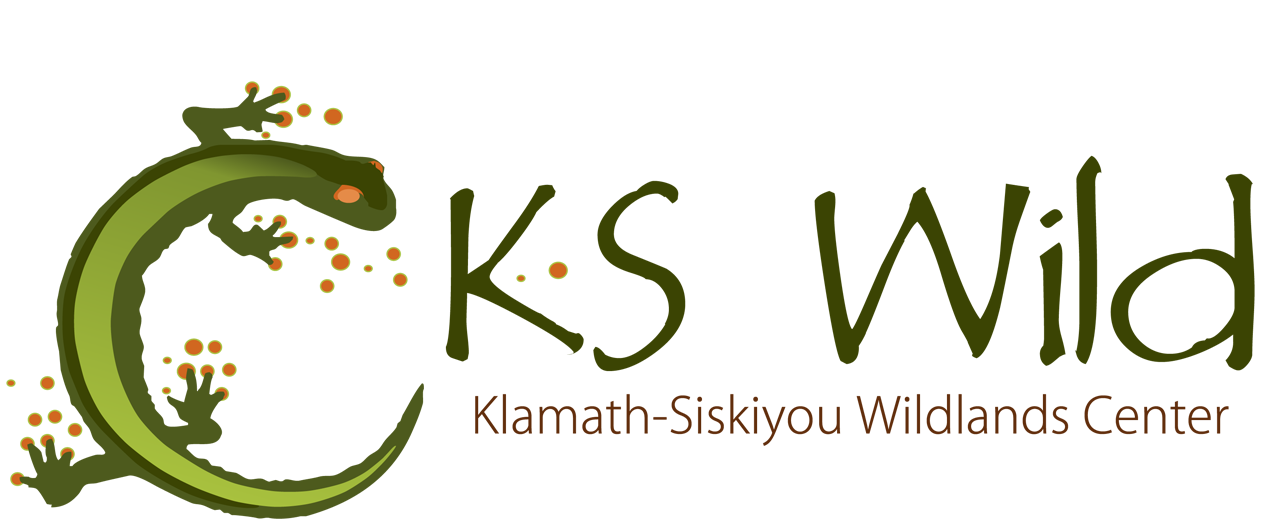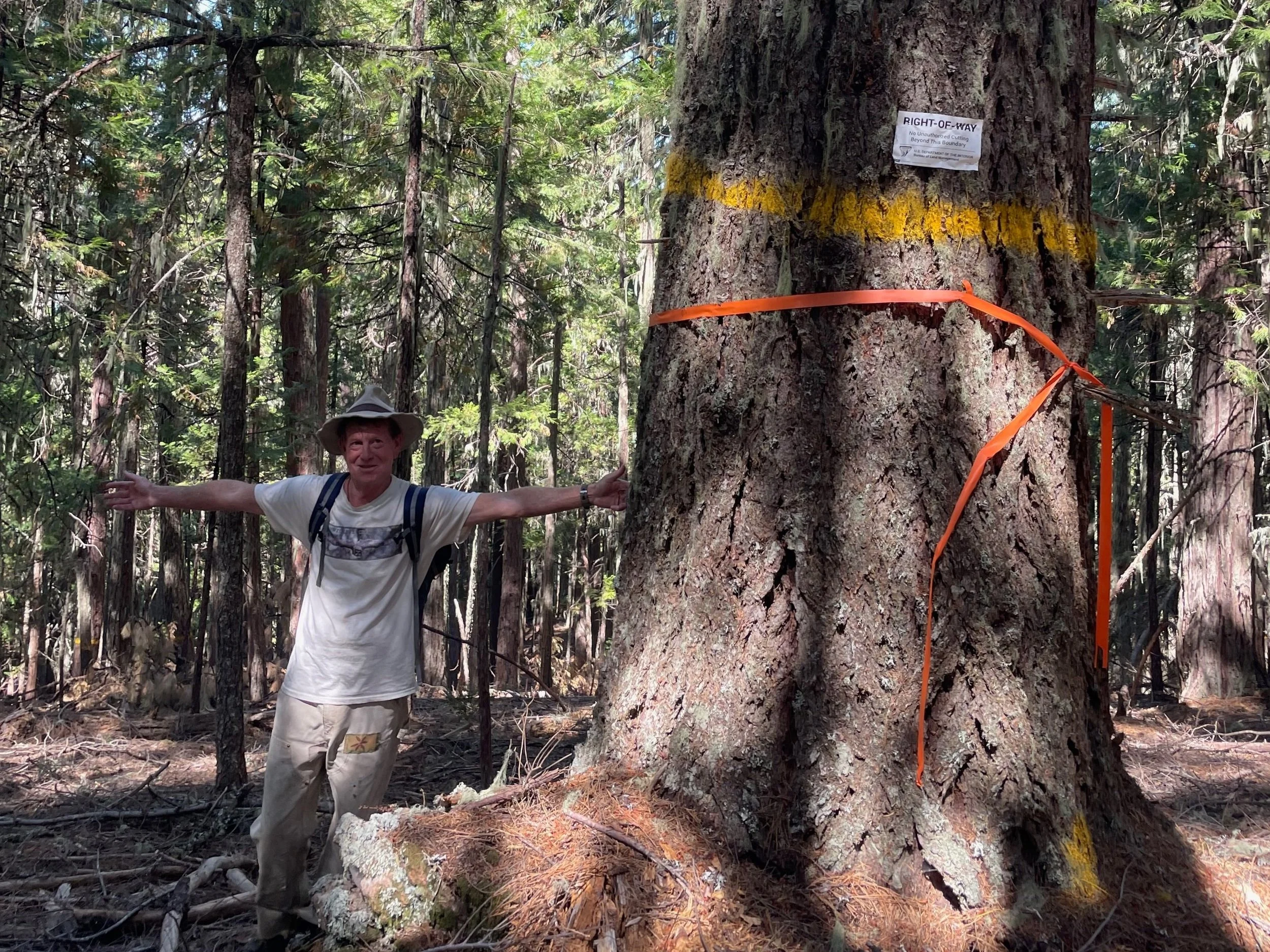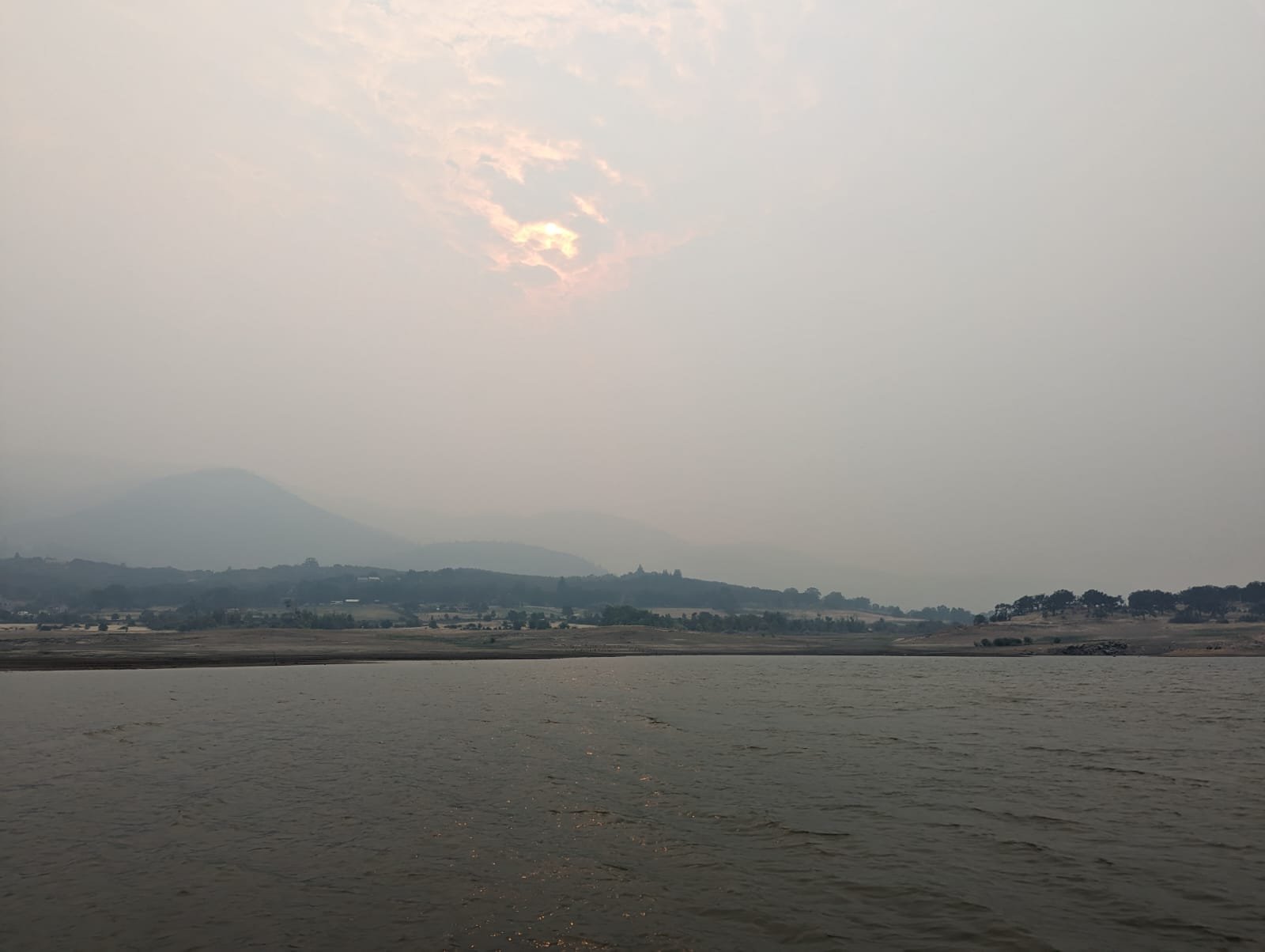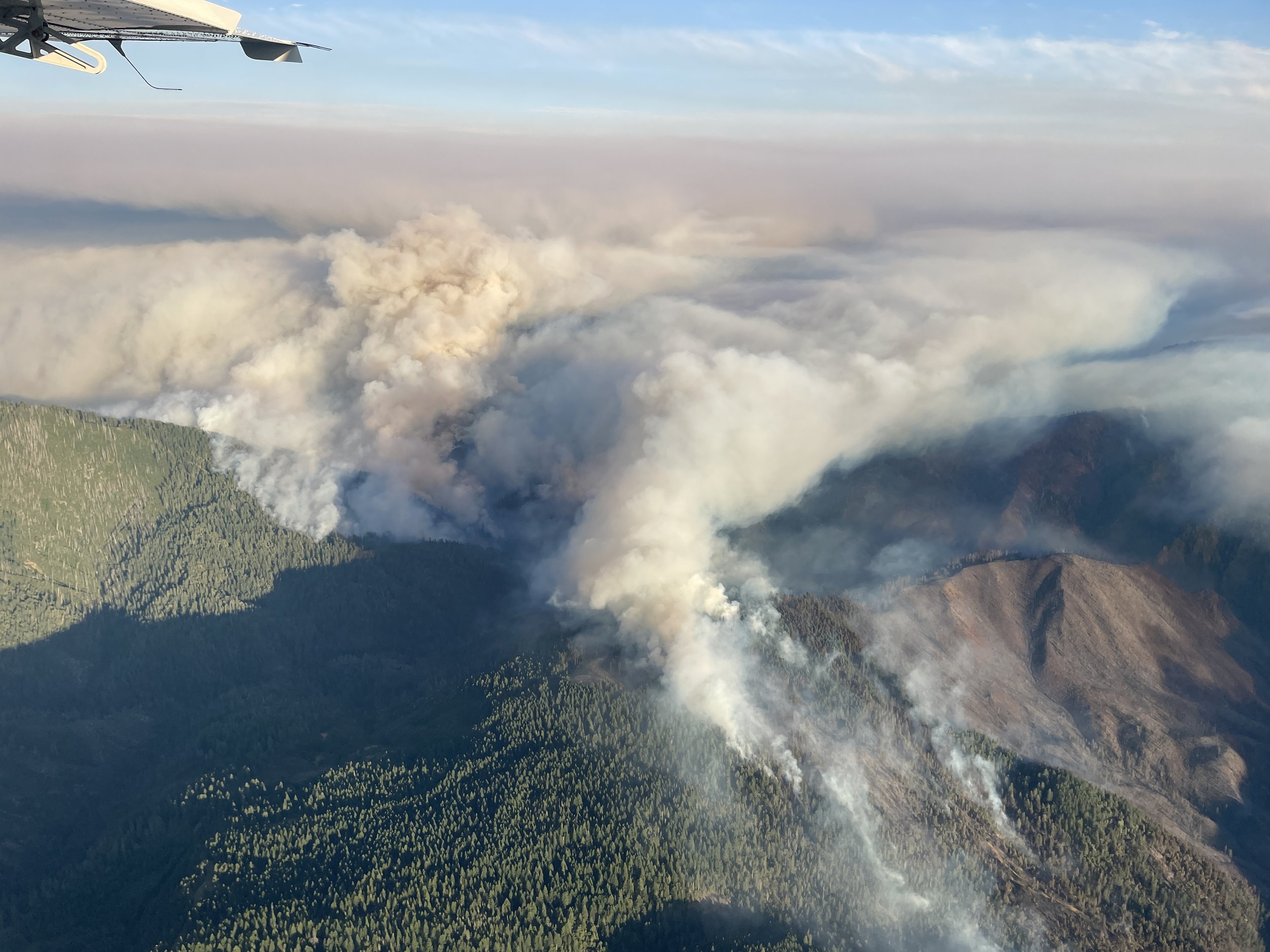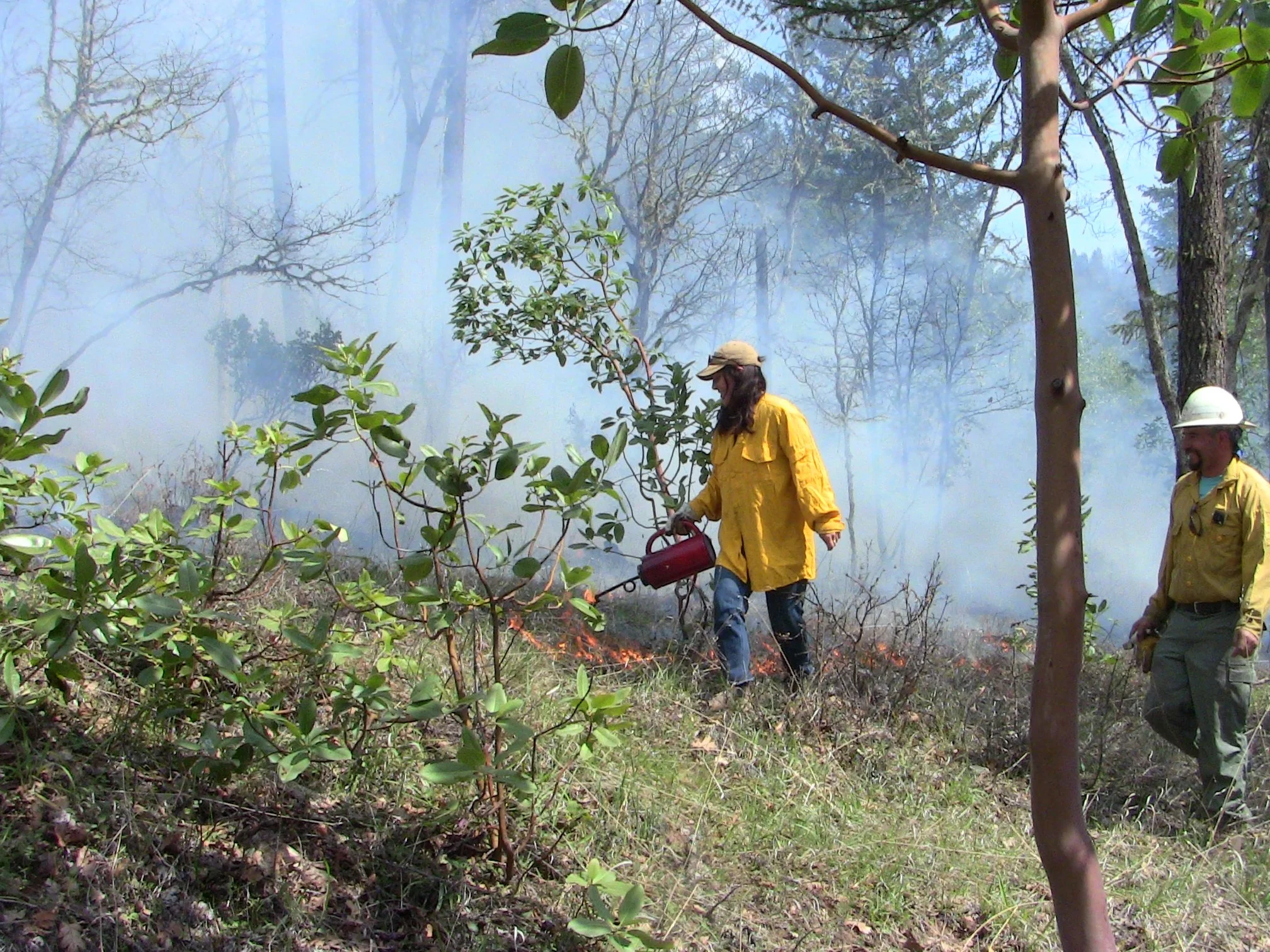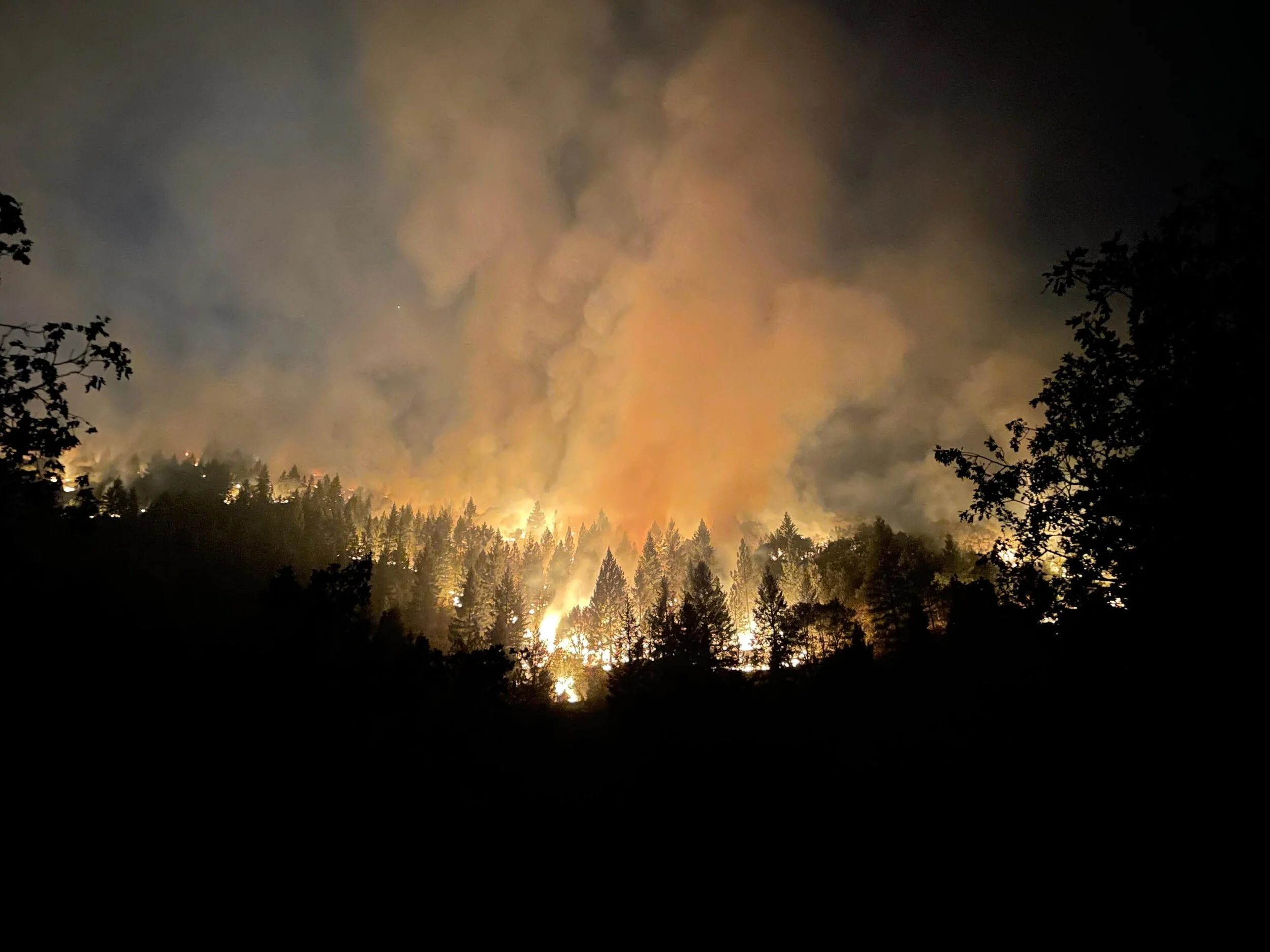KS Wild is known for holding federal land managers accountable and challenging timber sales that threaten harm to wildlife and watersheds, so it's a big deal when we give the BLM their flowers for doing the right thing…
Read MoreThe Bureau of Land Management recently published an EA and solicited public comment for the South Clark Forest Management Project, which would have increased wildfire hazard by logging the proposed 2,238 acres outside of Butte Falls, OR. The BLM, however, has course corrected this project in a win for wildfire resilience. Click to read more.
Read MoreFire and disturbance have always been a natural component of the earth's ecosystems. There are some plants that rely on fire to continue their next generation of life. Click to learn more.
Read MoreWildfires are producing intense smoke this summer that can pose serious health risks. Please protect yourself and those you care for from excessive smoke, especially those that have sensitive respiratory systems. Read our blog post if you want to learn more about smoke resources.
Read MoreWith the fire season in the rearview mirror, we offer this recap of the 2023 wildfires in the Klamath-Siskiyou region. Read more about each fire and gain access to resources for your own wildfire safety.
Read MoreThe Northwest Forest Plan is the largest, truly science-based forest and ecosystem management plan in the country, affecting 19 million acres of public lands across western Washington, Oregon, and northern California, and it’s getting an update. Learn more here.
Read MoreAs numerous fires continue to sweep through northern California, resources are being compiled to issue aid to aid our community members, provide up-to-date information on evacuations and road closures, and supply smoke and fire updates.
Read MoreWildfires are producing intense smoke this summer that can pose serious health risks. Please protect yourself and those you care for from excessive smoke, especially those that have sensitive respiratory systems. Read our blog post if you want to learn more about smoke resources.
Read MoreWe need to protect Oregon lands from climate extremes and harness their potential as a climate solution. The Senate Committee on Natural Resources has scheduled a hearing on SB 530, common-sense legislation that will help increase carbon sequestration on our forests, agricultural lands, and wetlands and improve the resilience of our water, wildlife, and communities. Learn more about SB 530 and action you can take for natural climate solutions in this blog.
Read MoreThe Oregon legislature kicked off its 2023 legislative session in early January and wildfire is definitely on policy makers' minds. Revising the controversial statewide wildfire risk map released last year is a top priority. KS Wild is tracking several other wildfire bills in the session and is advocating for policy that protects both our communities and our forests.
Read MoreLiving in a fire prone area can be scary. We have witnessed destructive wildfires that have left our communities changed forever. The good news is there are actions we can take to prepare our communities for it. Read our blog to learn about the ways prescribed fire can help prevent detrimental wildfire.
Read MoreWe have recapped the 2022 wildfire’s in the Klamath-Siskiyou region. Please see the bottom of this blog for ways in which you can contribute to the relief efforts for those people and communities most impacted.
Read MoreAs the McKinney Fire continues to sweep through northern California, resources are being compiled to issue aid to aid our community members, provide up-to-date information on evacuations and road closures, and supply smoke and fire updates.
Read MoreThe US Forest Service recently announced a 10-year, multibillion-dollar plan to reduce wildfire risk on up to 50 million acres that border vulnerable communities throughout the country. Read KS Wild’s summary of the plan and how it will impact our work and our region.
Read MoreIn order to adapt to climate change and increased wildfire severity, we need new policies based on climate adaptation for both our communities and our landscapes. While much more needs to be done, as a result of engaged and vocal residents, some of our elected officials are taking action. Here is a rundown of the actions being considered and taken by political leaders at the local, state and federal levels that could help us adapt to the increased risk of wildfire.
Read MoreFor the second talk in KS Wild’s Summer Speaker Series on Fire Management, Dr. Christopher J. Dunn focused on five key things we need to remember in our fire-prone landscape, and a new method derived from his research that may alter how we fight fires in the future.
Read MoreSome research shows the region’s forested landscapes were generally more open due to fire prior to the 20th century than they are today and today’s landscape is characterized by denser forests, less structural diversity, more fire-sensitive species, fewer coarse-grained vegetation mosaics, and a greater likelihood of high-severity fire (particularly in previously open ponderosa pine forests).
Read More
Make your voice heard: Join your local community in Curry and Josephine County to speak out to Senator Merkley! Now is a critical time for southern Oregon to engage and support issues that matter to our forests, environmental laws, and communities.
Fire is so important to the world-renown forest diversity of the Klamath-Siskiyou that it is recognized as the keystone ecological process. Here in the KS, forests with fire are healthy forests!
Read More
Following decades of fire suppression and logging that created dense young forests, a return to ecosystem resiliency requires thinning second-growth plantations, retaining large trees and forest canopy, and returning the role of fire to these fire-dependent forests.
Read More